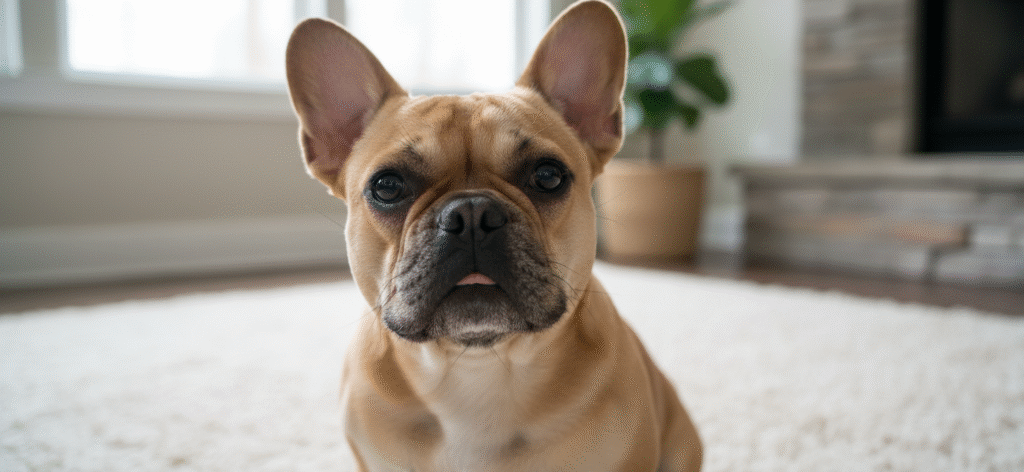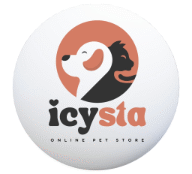The Ultimate French Bulldog Care Guide
French Bulldogs have become America’s favorite companion dogs, ranking as the 1 most popular breed according to the American Kennel Club. This comprehensive French Bulldog care guide will help both new and experienced owners understand the unique needs of these charming, bat-eared companions.

Understanding Your French Bulldog's Unique Needs
French Bulldog health considerations differ significantly from other breeds due to their brachycephalic (flat-faced) structure. These adorable features that make Frenchies so appealing also create specific care requirements that every French Bulldog owner should understand.
Physical Characteristics and Health Implications
French Bulldogs typically weigh between 20-28 pounds and stand 11-13 inches tall. Their compact, muscular build and shortened airways require special attention to prevent breathing difficulties and overheating.
Key Physical Features
Flat, pushed-in nose (brachycephalic)
Large, bat-like ears
Short, smooth coat
Compact, muscular frame
Prominent eyes
Essential French Bulldog Health Care
Breathing and Respiratory Care
The most critical aspect of French Bulldog care involves managing their respiratory challenges. Brachycephalic Obstructive Airway Syndrome (BOAS) affects most French Bulldogs to varying degrees.
Signs of Respiratory Distress:
Excessive panting or labored breathing
Loud snoring or wheezing
Blue gums or tongue
Collapse or fainting episodes
Difficulty exercising
Prevention Strategies:
Avoid exercise during hot, humid weather
Use harnesses instead of collars to reduce throat pressure
maintain optimal weight to reduce breathing strain
Provide plenty of fresh water and shade
Schedule regular veterinary checkups
Temperature Regulation
French Bulldogs cannot regulate body temperature effectively due to their shortened airways. Frenchie care tips for temperature management include:
Explore our collections at ICYSTA today, and discover a new standard of care for your senior dog or cat.
Hot Weather Precautions:
Exercise only during cool morning or evening hours
Provide cooling mats or vests during summer
Never leave your Frenchie in a parked car
Use portable water bowls during outdoor activities
Consider indoor exercise alternatives during heat waves
Cold Weather Protection:
Provide warm sweaters or coats for winter walks
Limit outdoor time in freezing temperatures
Ensure dry, warm sleeping areas
Watch for signs of discomfort or shivering
Eye Care
French Bulldogs’ prominent eyes are vulnerable to injury and require regular attention:
Clean around eyes daily with damp cloth
Watch for excessive tearing or discharge
Protect eyes from debris during outdoor activities
Schedule regular eye examinations with your veterinarian
Optimal French Bulldog Diet and Nutrition
Nutritional Requirements
A proper French Bulldog diet should address their specific needs while preventing common health issues like allergies and digestive problems.
Essential Nutrients:
High-quality protein (22-25% for adults)
Moderate fat content (8-15%)
Limited carbohydrates to prevent weight gain
Omega-3 fatty acids for skin and coat health
Probiotics for digestive support
Recommended Feeding Schedule
Puppies (2-12 months):
3-4 small meals daily
High-quality puppy formula
Gradual transition between food brands
Adults (1-7 years):
2 meals daily
Measure portions carefully to prevent overfeeding
Consistent feeding times
Seniors (7+ years):
Senior-specific formulas with joint support
Smaller, more frequent meals if needed
Regular weight monitoring
Explore our collections at ICYSTA today, and discover a new standard of care for your senior dog or cat.
Foods to Avoid
Toxic Foods for French Bulldogs:
Chocolate and caffeine
Grapes and raisins
Onions and garlic
Avocado
Alcohol
High-fat foods that can trigger pancreatitis
Managing Food Allergies
French Bulldogs commonly develop food sensitivities. Common allergens include:
Chicken and poultry
Beef and lamb
Dairy products
Wheat and corn
Soy products
Exercise and Activity Requirements
Daily Exercise Needs
Despite their small size, French Bulldogs need regular exercise to maintain health and prevent behavioral issues.
Recommended Activities:
30-60 minutes of daily exercise
Short, frequent walks rather than long sessions
Indoor play during extreme weather
Swimming (with proper flotation devices)
Mental stimulation through puzzle toys
Exercise Precautions
Safety Guidelines:
Monitor breathing throughout activities
Take frequent rest breaks
Provide water access during exercise
Stop immediately if signs of distress appear
Avoid strenuous activity after meals
Grooming and Maintenance
Coat Care
French Bulldogs have minimal grooming needs but require consistent care:
Weekly Grooming Routine:
Brush weekly with soft-bristled brush
Bathe monthly or as needed
Use gentle, hypoallergenic shampoos
Dry thoroughly, especially between wrinkles
Wrinkle Care
Facial wrinkles require daily attention to prevent infections:
Clean wrinkles daily with unscented baby wipes
Dry thoroughly with soft cloth
Apply cornstarch or specialized wrinkle powder if needed
Watch for signs of irritation or infection
Nail and Ear Care
Nail Trimming:
Trim nails every 2-3 weeks
Use proper nail clippers designed for dogs
Take care not to cut the pink quick inside the nail
Ear Cleaning:
Check ears weekly for dirt, wax, or odor
Clean with veterinary-approved ear cleaner
Never insert cotton swabs deep into ear canal
Basic Training Principles
French Bulldogs are intelligent but can be stubborn. Successful training requires:
Positive Reinforcement Methods:
Use treats and praise for motivation
Keep training sessions short (5-10 minutes)
Be consistent with commands and expectations
Practice patience and persistence
Explore our collections at ICYSTA today, and discover a new standard of care for your senior dog or cat.
Essential Commands
Priority Training Areas:
House training and crate training
Basic obedience (sit, stay, come, down)
Leash training with harness
Socialization with people and other pets
Addressing Common Behavioral Issues
Separation Anxiety:
Gradual alone-time training
Provide engaging toys and puzzles
Consider crate training for security
Maintain consistent routines
Excessive Barking:
Identify triggers and address root causes
Use positive reinforcement for quiet behavior
Provide adequate mental and physical stimulation
Health Monitoring & Vet Care
Puppies: Need several vet visits for vaccinations.
Adults: Have a full health check once a year.
Seniors: Go to the vet twice a year.
Emergencies: Go immediately if your dog has trouble breathing.
Common Health Problems
Hip and joint issues.
Skin allergies.
Digestive sensitivities.
Heart problems.
Spine issues (IVDD).
Warning Signs – Call the Vet If:
Breathing problems or blue gums.
Sudden collapse or weakness.
Ongoing vomiting or diarrhea.
No appetite for more than 24 hours.
Big changes in behavior.
Creating a Safe Home for a French Bulldog
Remove small items and toxic plants.
Cover or secure electrical cords.
Use non-slip flooring and baby gates for stairs.
Comfort & Care Items
Orthopedic bed for joints.
Raised food and water bowls.
Cooling mats to avoid overheating.
Fun toys to keep the dog mentally active.
Caring for a French Bulldog requires dedication, knowledge, and attention to their unique needs. By following this comprehensive French Bulldog care guide, you’ll be well-equipped to provide the best possible care for your Frenchie companion.
Remember that every dog is individual, and what works for one may not work for another. Regular communication with your veterinarian, combined with careful observation of your dog’s behavior and health, will help ensure your French Bulldog lives a long, healthy, and happy life.
The investment in proper care will be rewarded with years of loyal companionship from one of the most charming and affectionate breeds in the canine world.
Explore our collections at ICYSTA today, and discover a new standard of care for your senior dog or cat.
